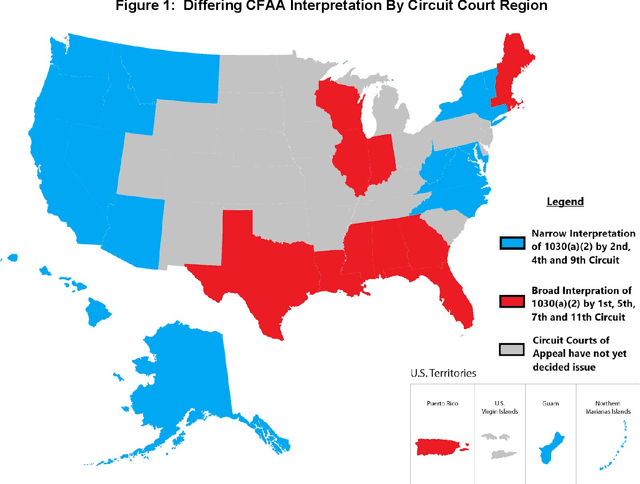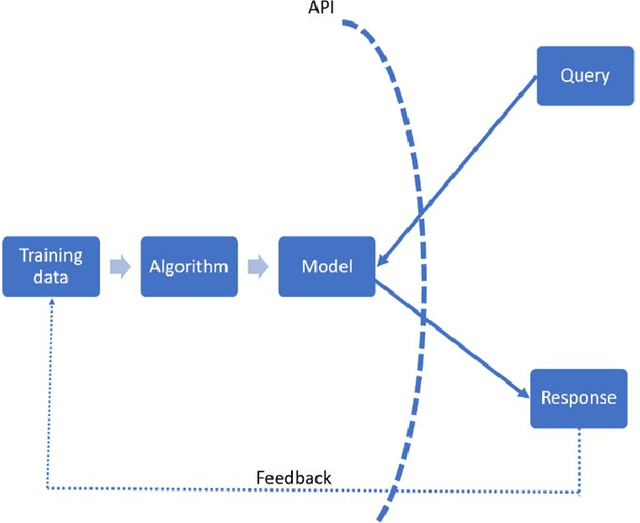Jonathon Penney
Legal Risks of Adversarial Machine Learning Research
Jun 29, 2020


Abstract:Adversarial Machine Learning is booming with ML researchers increasingly targeting commercial ML systems such as those used in Facebook, Tesla, Microsoft, IBM, Google to demonstrate vulnerabilities. In this paper, we ask, "What are the potential legal risks to adversarial ML researchers when they attack ML systems?" Studying or testing the security of any operational system potentially runs afoul the Computer Fraud and Abuse Act (CFAA), the primary United States federal statute that creates liability for hacking. We claim that Adversarial ML research is likely no different. Our analysis show that because there is a split in how CFAA is interpreted, aspects of adversarial ML attacks, such as model inversion, membership inference, model stealing, reprogramming the ML system and poisoning attacks, may be sanctioned in some jurisdictions and not penalized in others. We conclude with an analysis predicting how the US Supreme Court may resolve some present inconsistencies in the CFAA's application in Van Buren v. United States, an appeal expected to be decided in 2021. We argue that the court is likely to adopt a narrow construction of the CFAA, and that this will actually lead to better adversarial ML security outcomes in the long term.
Politics of Adversarial Machine Learning
Feb 19, 2020Abstract:In addition to their security properties, adversarial machine-learning attacks and defenses have political dimensions. They enable or foreclose certain options for both the subjects of the machine learning systems and for those who deploy them, creating risks for civil liberties and human rights. In this paper, we draw on insights from science and technology studies, anthropology, and human rights literature, to inform how defenses against adversarial attacks can be used to suppress dissent and limit attempts to investigate machine learning systems. To make this concrete, we use real-world examples of how attacks such as perturbation, model inversion, or membership inference can be used for socially desirable ends. Although the predictions of this analysis may seem dire, there is hope. Efforts to address human rights concerns in the commercial spyware industry provide guidance for similar measures to ensure ML systems serve democratic, not authoritarian ends
 Add to Chrome
Add to Chrome Add to Firefox
Add to Firefox Add to Edge
Add to Edge